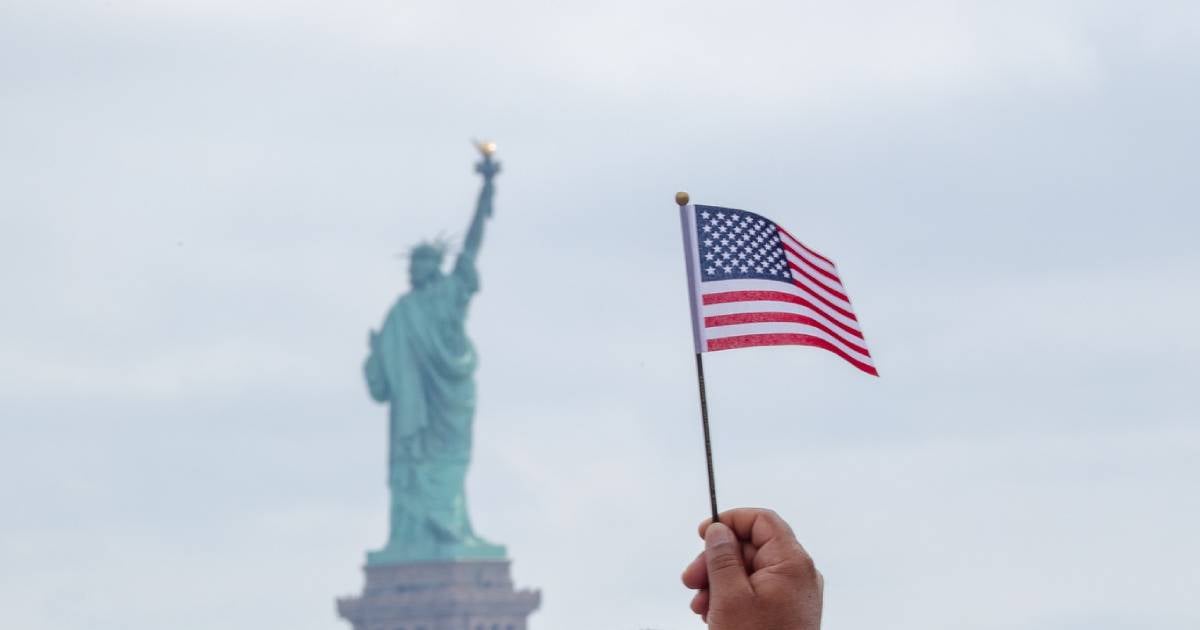What was celebrated just days ago as a positive development for thousands of Cubans has now turned into a nightmare. The Trump administration has once again ordered the immediate revocation of humanitarian parole for over 530,000 migrants from Cuba, Haiti, Nicaragua, and Venezuela, demanding their departure under the threat of forced deportation.
This announcement, exclusively confirmed by CNN and backed by an official notice from the Department of Homeland Security (DHS), nullifies the legal residency and work permits granted under the Biden administration's CHNV parole program. "This notice informs you that your parole has been canceled," reads the email sent to recipients. "Failure to leave the country may subject you to enforcement actions, including detention and removal."
The news has sparked distress among those affected, particularly Cubans, who just two days prior were celebrating the resumption of immigration processes by the U.S. Citizenship and Immigration Services, following a court order from Massachusetts. This announcement had included the reactivation of applications for permanent residency under the Cuban Adjustment Act, work permits, TPS, and other legal relief options for those who had been in the U.S. for more than a year and a day as parole beneficiaries.
Many Cubans had viewed this reactivation as a beacon of hope after months of uncertainty, and had begun preparing documents, forms, and proof of ties in anticipation of regularizing their status. Today, that hope has been crushed by an executive order, justified by an emergency Supreme Court decision, allowing the Trump administration to expedite deportations without migration defense guarantees.
The humanitarian parole program was established in January 2023 as a safe and legal pathway for migrants from crisis-stricken countries. By December 2024, the program had legally admitted 110,240 Cubans, 211,040 Haitians, 93,070 Nicaraguans, and 117,330 Venezuelans to the U.S. Many of these individuals now reside in Florida and other parts of the country, with stable jobs, school-enrolled children, and community ties.
However, since Trump's inauguration on January 20, the parole has been under constant attack. The current decision represents one of the most severe blows, dismantling in a matter of days a policy that provided a humanitarian solution to irregular crossings and offered thousands of Cubans a genuine chance for a dignified and stable life in the United States.
Although the parole cancellation is backed by a temporary Supreme Court decision, the case will continue in lower courts. "This decision is a humanitarian disaster. You cannot play with the lives of hundreds of thousands of people who did everything by the legal route," said a spokesperson for the Coalition for Immigrant Rights in Miami.
Key Questions About Humanitarian Parole Cancellation
What is the humanitarian parole program?
The humanitarian parole program was created to provide a legal and safe pathway for migrants from countries in crisis to enter the United States. It allowed beneficiaries to reside and work legally in the U.S.
Why has the humanitarian parole been revoked?
The Trump administration has revoked the humanitarian parole for over 530,000 migrants from Cuba, Haiti, Nicaragua, and Venezuela, citing an emergency Supreme Court decision that allows for expedited deportations.
What are the implications for those affected by the cancellation?
Those affected must leave the U.S. or face potential enforcement actions, including detention and deportation. This has caused significant distress among the migrants who had hoped to regularize their status in the U.S.
